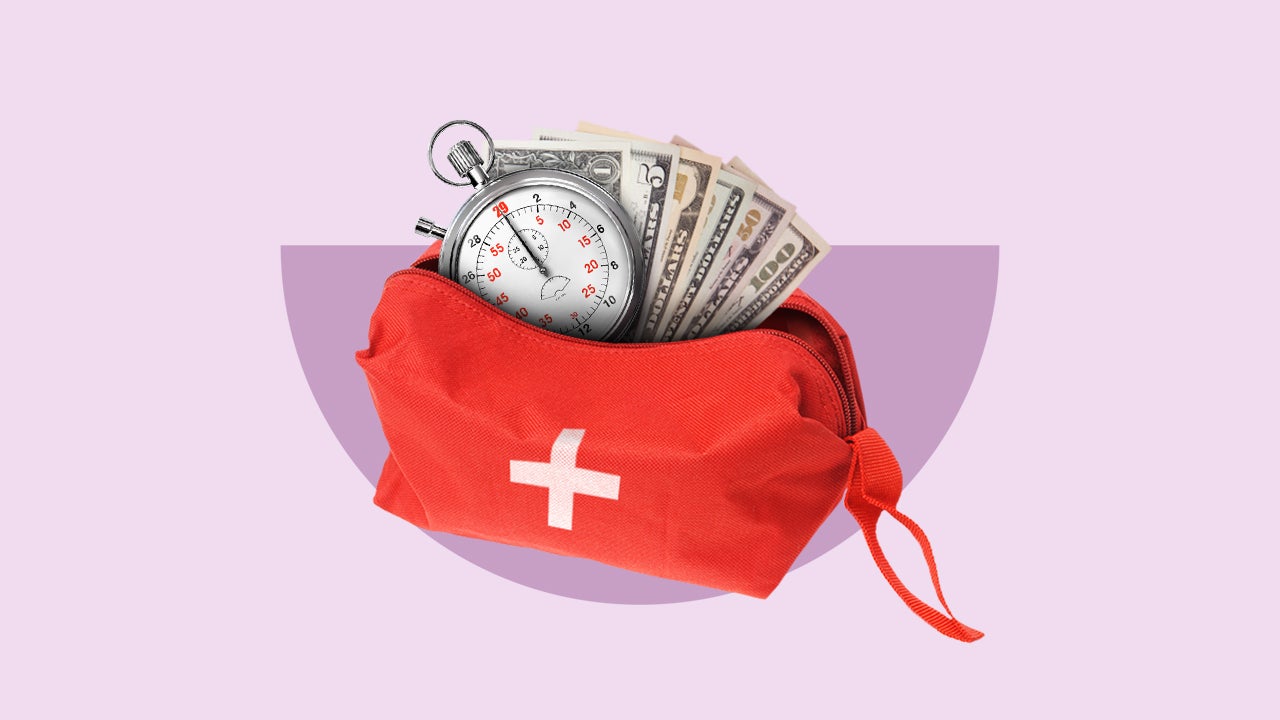How much will a short-term business loan cost?

Key takeaways
- Short-term business loans can be a helpful tool for businesses facing unexpected obstacles or experiencing rapid growth
- Interest rates for short-term business loans can vary greatly depending on the lender, loan type and the borrower's financial situation
- Short-term business loans may require more frequent payments compared to other longer-term loans
A short-term business loan can help your business cover gaps in funding, pay for an emergency expense or jump on the opportunity to grow on short notice.
While short-term business loans can be a gamechanger, it’s important to consider how you’ll have to pay in the long (and short) term. Here are the factors, rates and fees to know when determining how much a short-term business loan will cost.
Short-term business loan costs
Several factors impact the cost of a short-term business loan. Before signing a loan agreement, be sure you understand the interest rate, fees and terms the lender charges.
Interest rate
Interest is the cost of taking out a loan, expressed as a percentage. What is the interest rate on a short-term business loan? It varies. Even average business loan rates shift depending on your loan type. For example, the rates for a term loan won’t be the same as the interest rates for a business line of credit. Factors that impact interest rates are:
- Lender. You can choose to get a short-term loan with a traditional bank or credit union, or you can get your loan from an online lender. Online lenders tend to offer more lenient eligibility criteria for business owners with bad credit or otherwise. However, they may have higher interest rates, heftier fees or personal guarantee requirements.
- Loan type. Some types of loans tend to offer lower interest rates than others. For example, a merchant cash advance tends to charge high fees for borrowing, while term loans offer lower rates.
- Credit score. The lender will also look at your credit score and financial history to determine if you’re high-risk or low-risk for lending. If you have a poor credit score, they may charge high rates or deny you a loan. Subprime borrowers can look into bad credit business loans for the highest chance of getting approved.
- Revenue and time in business. Lenders use this to judge how risky lending to you will be. The higher your business revenue, the more you can borrow and the better interest rate you may be offered, since having a higher revenue amount indicates you can pay back the loan. A longer time in business also indicates that your business has been operating smoothly for a long time and can reliably pay back what’s borrowed.
- Collateral. Most lenders ask for collateral, which is an asset used to secure the loan like equipment or property. If you don’t manage the loan properly and end up defaulting, the lender can seize the asset to repay the loan. Secured loans often offer low interest rates, but you may want an unsecured business loan to protect your assets.
Interest rates vs. factor rates
As you’re comparing short-term small business loan options, you might see the cost of the loan expressed in different ways:
- Interest rate. The percentage rate at which your loan will accrue interest.
- Annual percentage rate (APR). The total cost to borrow the money over the course of the year, including interest and fees, expressed as a percentage
- Factor rates. The cost of a loan is expressed as a decimal figure (typically 1.1 to 1.5). To determine the borrowing cost, you multiply the factor rate by the total loan amount and subtract the loan balance. For example, a factor rate of 1.4 for a loan of $100,000 means you’ll have to repay $140,000 total, for a borrowing cost of $40,000. Unlike interest, factor rates don’t accrue over time — they’re fixed for the life of the loan.
Interest and APR are the most common ways to express the cost of a loan. Factor rates are typically found with accessible short-term loans like merchant cash advances and invoice factoring.
Factor rates look smaller than interest rates and APR but can cost more than you think. Convert any factor rates to interest rates to ensure you’re comparing apples to apples when evaluating your short-term business loan options. This will make it easier for you to see which loan is more affordable.
Short-term business loan fees
When reviewing short-term business loan costs, you’ll need to watch out for short-term business loan fees.
These vary by lender, but you should absolutely factor them into your calculations when determining if you can afford the loan. You can ask your lender if there are any fees and how much they cost, but keep an eye out for:
- Administrative fees
- Application fees
- Late fees
- Origination fees
- Underwriting fees
- Processing fees
- Packaging fees
All of these are fairly similar, covering the cost for the lender to draw up your loan and issue you the funds.
Repayment terms
When it comes to getting a short-term loan for business, the repayment window is usually fairly short. Repayment terms of six months to a year are common, but terms may go up to 24 months in some cases. In other words, this debt shouldn’t stick around for long.
If you have a loan with an interest rate, paying it off even faster can help you avoid interest accrual, which adds to the cost of your loan. Check your loan terms first because some lenders charge a penalty fee if you pay off your debt early.
If you have a factor rate, fast repayment won’t necessarily save you money. Remember, the factor rate is set rather than accruing like interest. That said, some lenders offer an early payment discount that might save you a little bit. Read your loan terms to find out if paying your debt off early could save you money.
Alternatives to short-term business loans
Getting short-term financing isn’t the right choice for every business. You may want to explore these alternatives to find the best option for you.
- Long-term loans. While short-term loans get paid off quickly, long-term loans help you lower the monthly payment and often come with lower interest rates than short-term loans.
- Lines of credit. You could opt to get revolving credit, which means that you can reuse the loan after paying off your initial withdrawal of funds. You can find both short and long terms with lines of credit.
- SBA loans. You can get loans guaranteed by the U.S. Small Business Administration, with loan terms up to 10 years or 25 years for real estate loans. You may be able to qualify for this loan even if you don’t qualify for traditional financing.
- Business grants. Business grants offer a way to provide funding without having to repay. This type of financing is competitive, so you’ll want to showcase a strong business plan and overview of your business to receive the award.
- Business credit cards. Business credit cards allow your business to receive funding that you can reuse as needed. These typically don’t require a minimum amount of revenue, making them more accessible to startups and small businesses.
Bottom line
The best short-term business loans can help your business seize growth opportunities or weather challenges. Keep in mind that this financing option has benefits and drawbacks, such as higher rates and shorter repayment periods than other loan types. Make sure this is the right type of loan for you before you apply.
Frequently asked questions
-
You should consider a short-term loan if your business needs money now and can repay it quickly. Usually, you’ll be able to borrow somewhere between $50,000 and $100,000, and you’ll often need to repay it in a year or less, although some short-term loans offer a term of up to 24 months.
-
Yes. Getting a short-term business loan with bad credit is possible, but it will come with high rates and fees. If you have time, it pays to build your credit and improve your chances of approval so you can find an affordable option.
-
Yes, they’re legal. But be advised that they have less regulation because they’re considered an advance on future receivables, not a loan. That means that as a borrower, you should do your due diligence before working with any company that offers merchant cash advances.
Why we ask for feedback Your feedback helps us improve our content and services. It takes less than a minute to complete.
Your responses are anonymous and will only be used for improving our website.
You may also like

Low-income loans: Personal loans for a tight budget

How fast can you get a loan in an emergency?

How much will an LLC loan cost?

How much will a fast business loan cost?



